2020-2021 SNSP Pre-doctoral Fellows
 Michael Bivona
Michael Bivona
Ph.D. Student
History and Sociology
Mr. Michael Bivona is a 4th year PhD student in the School of History and Sociology. He earned an M.S. from the School of Justice and Social Inquiry at Arizona State University, as well as an M.A. in Anthropology from the New School for Social Research. His current research examines the development of transnational information infrastructure, and its relationship to post-Cold War foreign policy. As a Sam Nunn Security Program Fellow, he aims to broaden this focus to include military and intelligence networks and the unique balance they must strike between utility, access, and security.
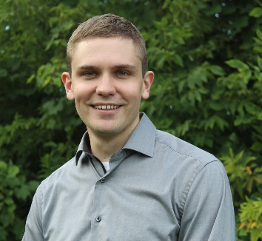 Marc Muehlberg
Marc Muehlberg
Ph.D. Student
Aerospace Engineering
Mr. Marc Muehlberg is a 4th year Ph.D. student in the School of Aerospace Engineering. Previously, he earned a B.S. and a M.S. in Aerospace Engineering from the University of Stuttgart in Germany. His current research is in the field of defense systems engineering on operational analysis and mission planning for humanitarian aid and disaster relief within GT’s Aerospace Systems Design Laboratory (ASDL). Specifically, he is developing a methodology to decompose and recombine concepts of operations to rapidly create versions suitable for modelling and simulation to enable multi-scenario fitness assessments of assets and technologies. As Sam Nunn Security Program Fellow, Marc is looking forward to analyze the long-term impact of emerging technologies and technological development of state and non-state actors on security doctrines and the international security architecture.
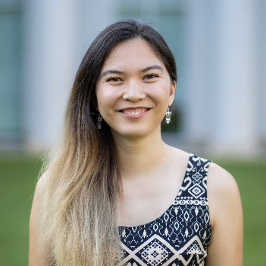 Joy Putney
Joy Putney
Ph.D. Student
Quantitative Biosciences
Ms. Joy Putney is a 5th year Ph.D. student in Quantitative Biosciences in the School of Biological Sciences and a National Science Foundation Graduate Research Fellow. She previously graduated summa cum laude from Washington & Lee University with a B.S. in Biology and Physics-Engineering. Her research focuses on how information for movement is encoded in neural signals to muscles, and more specifically on the role of precise timing of action potentials in controlling muscle force and body movements. As a Sam Nunn Security Program Fellow, Joy expects to gain expertise in policy and national security issues that will increasingly intersect with advances in neuroscience and wants to investigate the implications of dual-use neurotechnologies like brain-machine interfaces and neuroprosthetics on the future operating environment and warfighters.
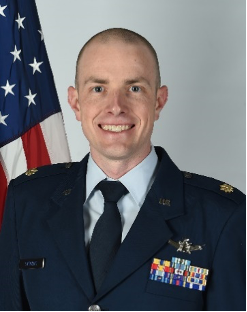 Brian C. Stewart, Major, US Space Force
Brian C. Stewart, Major, US Space Force
Ph.D. Student
Sam Nunn School of International Affairs
Maj Brian Stewart, USSF, is a 2nd year Ph.D. student in the Sam Nunn School of International Affairs. He holds a B.A. in Management and a M.S. in Space Studies. His research focuses on the effects of national security space system entanglement on deterrence and stability. Brian is an active duty Space Operations Officer with 12 years of operational experience in the 50th Space Wing, 460th Space Wing, and National Reconnaissance Office (NRO), where he operated Milstar and Advanced Extremely High Frequency (AEHF) Protected satellite communications (SATCOM) satellites; Defense Support Program (DSP) and Space-Based Infrared System (SBIRS) missile warning satellites; and classified national security systems. He also has experience working with advanced exploitation, processing, and dissemination of overhead data in the Intelligence Community (IC). Brian deployed from 2014-2015 as the NRO Liaison to Afghanistan in support of conventional and special operations forces. As a Sam Nunn Security Program Fellow, Brian hopes to gain new insights into emerging security challenges through close collaboration with the diverse group of fellows.
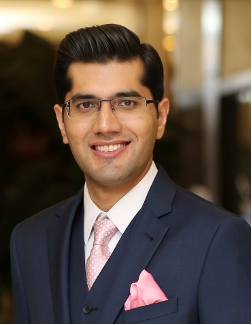 Muhammad Saad Zia
Muhammad Saad Zia
Ph.D. Student
Electrical and Computer Engineering
Mr. Muhammad Saad Zia is a 4th year Ph.D. student in the School of Electrical and Computer Engineering. He earned a B.E. and a M.S. in Electrical Engineering with specialization in wireless communications. Saad is a Fulbright student from Pakistan, and his doctoral research focuses on the modeling and analysis of millimeter-wave wireless communication networks for 5G and beyond systems. Prior to starting his Ph.D., he was working as an Assistant Director with the spectrum regulatory authority of Pakistan. During his professional career, Saad was involved in the policy-making process for the wireless spectrum regulation and the introduction of latest wireless technologies at the national level. As a Sam Nunn Security Program Fellow, Saad hopes to explore how the emergence of new and innovative technologies shape the policy-making process from a security perspective.
2020-2021 SNSP Mid-Career Fellows
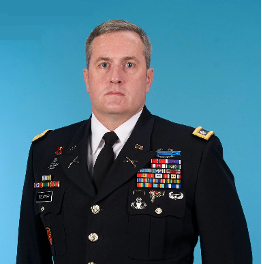 Eric Nylander, Lt Col, US Army
Eric Nylander, Lt Col, US Army
Military Fellow
Sam Nunn School of International Affairs
LTC Eric Nylander, USA, is the Army War College Fellow in Sam Nunn School of International Affairs at Georgia Tech where he brings a unique 29-year military perspective to the study and discussion of international affairs. He began his career as an enlisted Infantryman in 1991 before earning his commission as an Infantry Officer through Officer Candidate School in 2000. His first assignment was at Fort Wainwright, AK as a Platoon Leader and assistant battalion operation officer. His next assignment was at Dahlonega, GA as the battalion personnel officer and as a Company Commander. Next, Eric was assigned to at Fort Richardson, AK as assistant battalion operation officer and Company Commander. Following that, he was assigned as a Military Transition Team Chief in RC-West, Afghanistan. Finishing that assignment, Eric returned to Fort Richardson, AK and became the United States Army Alaska Plans and Future Operations Officer. His next assignment was to Khamis, Kingdom of Saudi Arabia as the Infantry Advisor to the Royal Saudi Land Forces (RSLF) Southern Area Command and RSLF Infantry. His next assignment was at Eglin AFB, FL as the battalion operations officer and executive officer. Following that, was assigned to Riyadh, Kingdom of Saudi Arabia as the advisor to the RSLF G3 and to the RSLF Aviation Corps. Finishing that assignment, he went to Homestead ARB, FL where he was the SOCSOUTH Chief of Current Operations. He was most recently assigned to Ft Stewart, GA as the Commander of the 1-306 Infantry Battalion and then as the Deputy Commander of the 188th Infantry Brigade.
Director
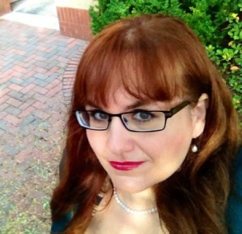 Margaret E. Kosal, Ph.D.
Margaret E. Kosal, Ph.D.
Associate Professor
Sam Nunn School of International Affairs
Working at the intersection of science and security, Prof. Kosal’s research explores the relationships among technology, strategy, and governance. Her work aims to understand and explain the role of technology and technological diffusion for national security at strategic and operational levels. The long-term goals of her work are to understand the underlying drivers of technological innovation and how technology affects national security and modern warfare.
Formally trained as an experimental scientist, Margaret earned a doctoral degree in Chemistry from the University of Illinois at Urbana-Champaign (UIUC) working on biomimetic and nano-structured materials. She is also the co-founder of a sensor company, where she led research on biological, chemical, and explosive detection and spearheaded efforts toward the real-world applications of the technology. During AY 2016-2017, she served as a Senior Adjunct Scholar to the Modern War Institute at West Point. She previously has served as a Senior Advisor to the Chief of Staff of the U.S. Army, as Science and Technology Advisor within the Office of the Secretary of Defense (OSD), and as an Associate to the National Intelligence Council (NIC). Margaret is the author of Nanotechnology for Chemical and Biological Defense (Springer Academic Publishers, 2009), which explores scenarios and strategies regarding the benefits and potential proliferation threats of nanotechnology and other emerging sciences for national security, and editor/contributor to the volumes, Technology and the Intelligence Community: Challenges and Advances for the 21st Century (2018), Development, Use, and Proliferation of Disruptive and Game-Changing Technologies in Modern Warfare (2019), and the forthcoming Proliferation of Weapons and Dual-Use Technologies: Diplomatic, Information, Military, Economic Approaches (2021). She is the recipient of multiple awards including the Office of the Secretary of Defense Award for Excellence and most recently honored as Georgia Power Professor of Excellence. In 2017, she was appointed Editor-in-Chief of the Cambridge University Press journal, Politics and the Life Sciences.
